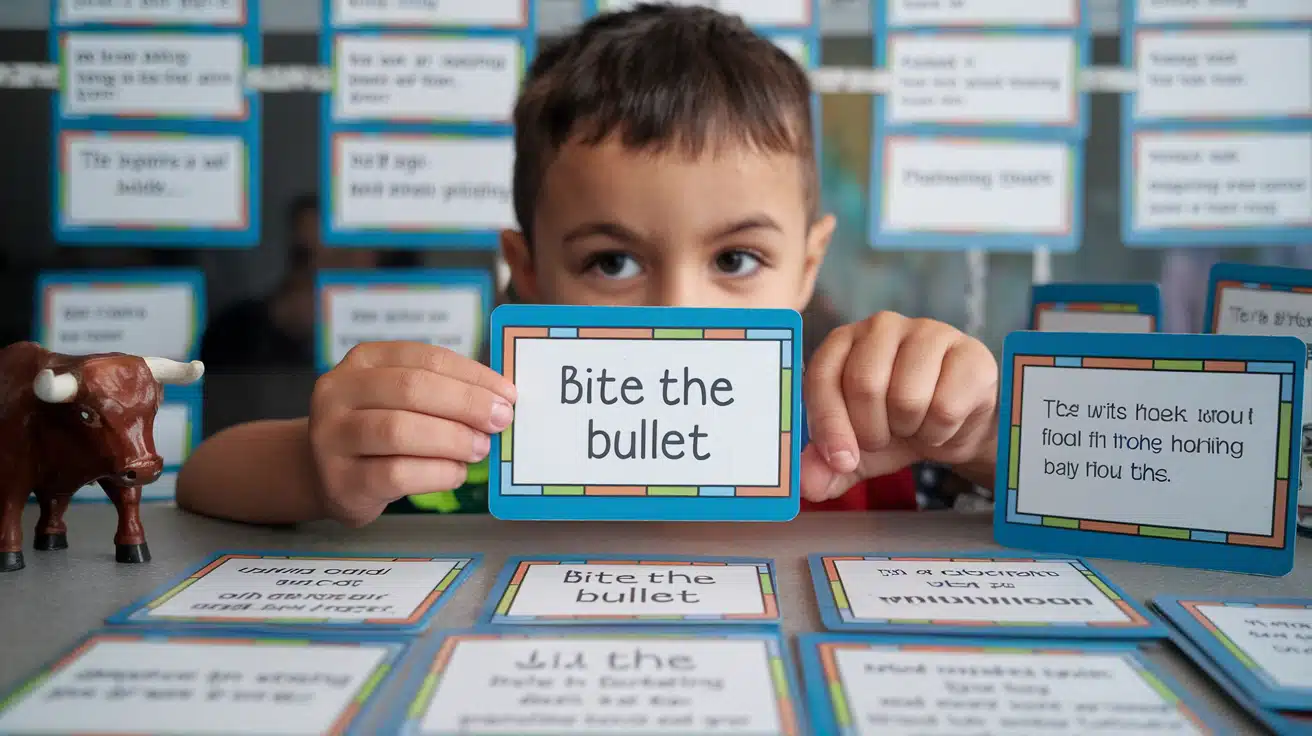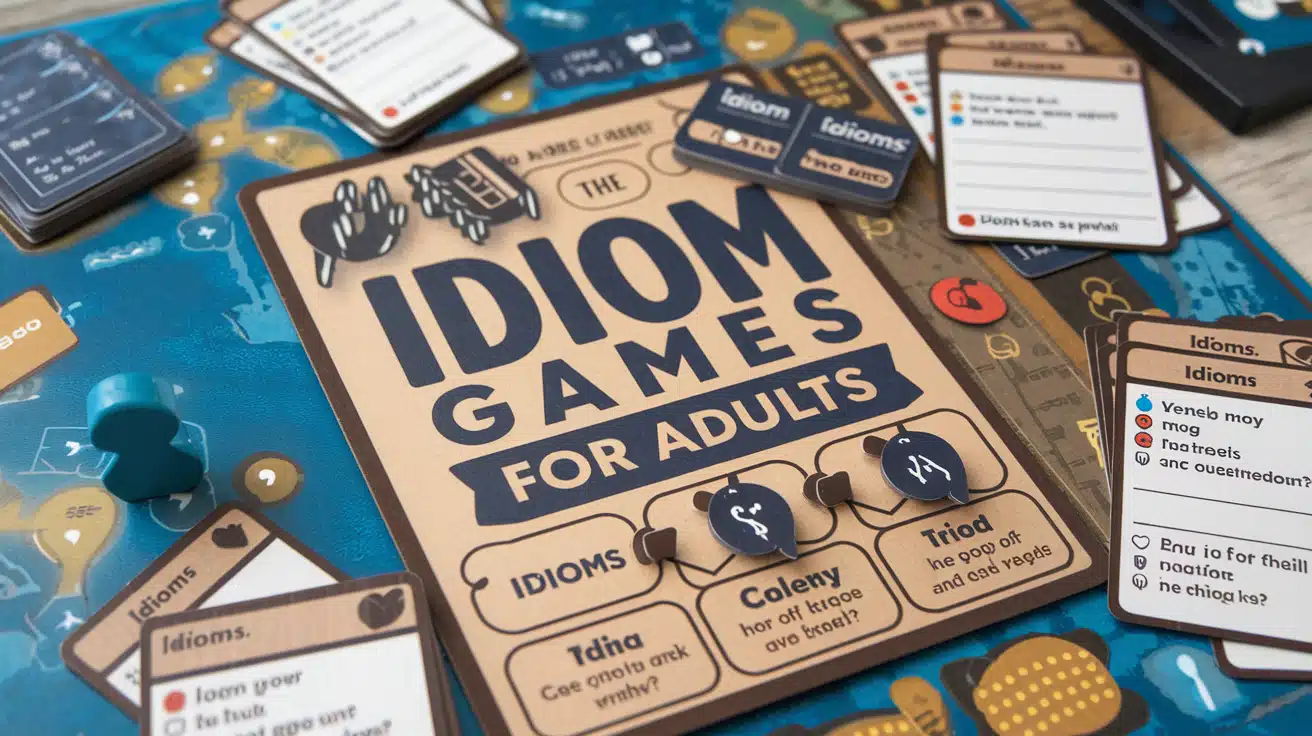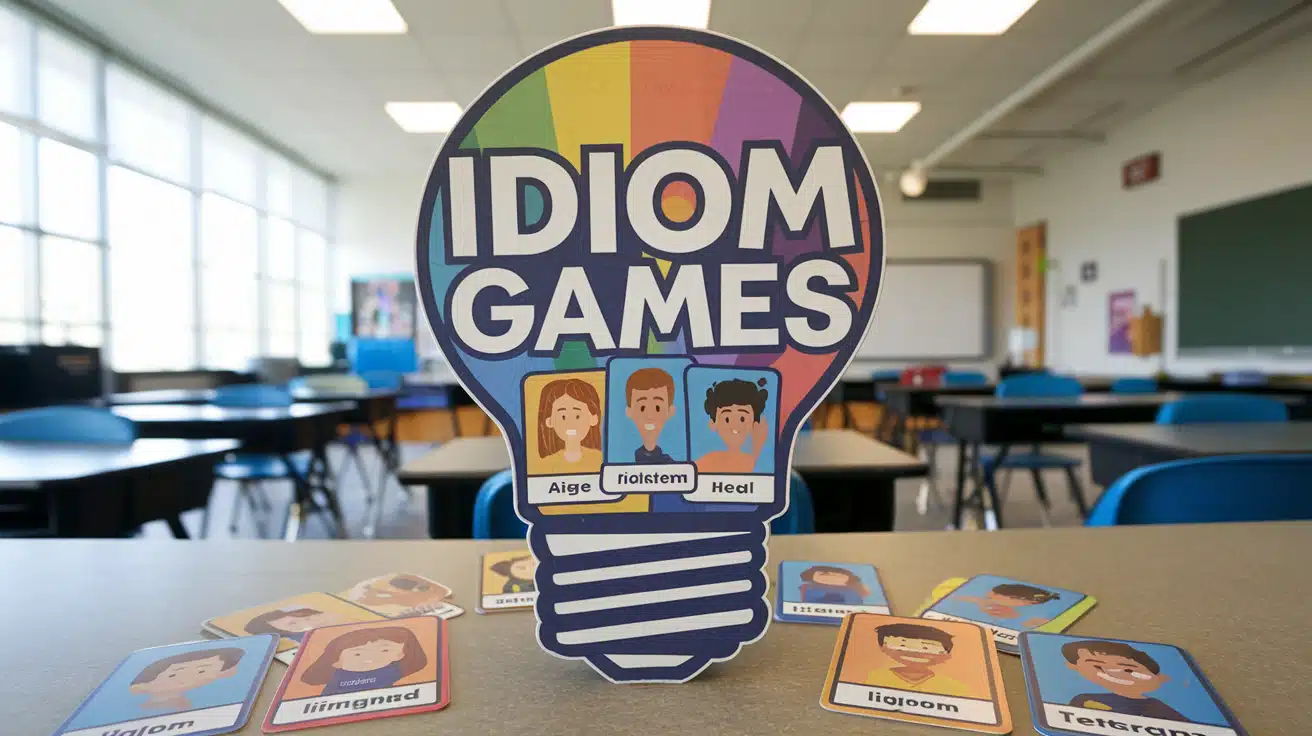Looking for fresh ways to teach idioms?
We know how tricky it can be to explain phrases like “it’s raining cats and dogs” to students.
Many teachers tell us they run out of ideas to make idiom lessons fun and memorable.
But here’s the good news – teaching idioms doesn’t have to be boring!
One of the best ways to reinforce idioms is through storytelling. Encourage students to create short stories or skits incorporating multiple idioms. This not only helps with comprehension but also makes learning interactive and enjoyable. The bubble shooter the old time classic is the best games in that regard.
We’ve gathered 25 simple games that work great for students of any age. These activities turn idiom practice into an enjoyable experience that helps everyone learn.
This post will show you the best idiom games you can use immediately in your classroom.
From quick warm-ups to full lesson activities, you’ll find options that fit your teaching style and schedule.
Idiom Games for Young Learners

1. Beat around the bush
a) To hit plants with a stick
b) To avoid talking about something directly
c) To exercise outdoors
d) To trim garden plants
Answer: b) To avoid talking about something directly
2. Pull someone’s leg
a) To help someone walk
b) To trick someone as a joke
c) To cause someone to fall
d) To ask for help
Answer: b) To trick someone as a joke
3. Spill the beans
a) To drop food on the floor
b) To tell a secret
c) To cook dinner
d) To go shopping
Answer: b) To tell a secret
4. Bite off more than you can chew
a) To eat too much food
b) To take on too many tasks
c) To speak while eating
d) To buy too many snacks
Answer: b) To take on too many tasks
5. Hit the nail on the head
a) To do home repairs
b) To be exactly right
c) To hurt yourself
d) To build furniture
Answer: b) To be exactly right
6. Break the ice
a) To start a friendly conversation
b) To go skating
c) To make cold drinks
d) To feel very cold
Answer: a) To start a friendly conversation
Idiom Games for Teens

7. Cost an arm and a leg
a) To hurt yourself badly
b) To lose your balance
c) To be very expensive
d) To go to the doctor
Answer: c) To be very expensive
8. Hold your horses
a) To work on a farm
b) To be patient and wait
c) To ride animals
d) To clean stables
Answer: b) To be patient and wait
9. Under the weather
a) To check the forecast
b) To feel sick or unwell
c) To carry an umbrella
d) To enjoy rainy days
Answer: b) To feel sick or unwell
10. In hot water
a) To take a bath
b) To be in trouble
c) To make tea
d) To go swimming
Answer: b) To be in trouble
11. Back to square one
a) To play board games
b) To return to the start
c) To solve math problems
d) To draw shapes
Answer: b) To return to the start
12. Jump on the bandwagon
a) To start a music career
b) To join a trend because others are doing it
c) To ride in a parade
d) To learn an instrument
Answer: b) To join a trend because others are doing it
Idiom Games for Adults

13. Burn the midnight oil
a) To start a fire
b) To work or study late into the night
c) To waste electricity
d) To cook dinner late
Answer: b) To work or study late into the night
14. Cut corners
a) To do carpentry work
b) To take shortcuts to save time or money
c) To make sharp turns while driving
d) To trim paper edges
Answer: b) To take shortcuts to save time or money
15. Put all your eggs in one basket
a) To go grocery shopping
b) To risk everything on a single opportunity
c) To make breakfast
d) To carry groceries
Answer: b) To risk everything on a single opportunity
16. Between a rock and a hard place
a) To go rock climbing
b) To face two equally bad choices
c) To build a wall
d) To find minerals
Answer: b) To face two equally bad choices
17. Bark up the wrong tree
a) To train a dog
b) To pursue a wrong or mistaken course of action
c) To study plants
d) To go hiking
Answer: b) To pursue a wrong or mistaken course of action
18. Cry wolf
a) To be scared of animals
b) To raise false alarms repeatedly
c) To go camping
d) To make loud noises
Answer: b) To raise false alarms repeatedly
Idiom Games for Mixed Age Groups

19. Piece of cake
a) To eat dessert
b) Something very easy to do
c) To bake pastries
d) To share food
Answer: b) Something very easy to do
20. Call it a day
a) To check the calendar
b) To stop working and go home
c) To plan for tomorrow
d) To set an alarm
Answer: b) To stop working and go home
21. Let the cat out of the bag
a) To free a pet
b) To reveal a secret by mistake
c) To go shopping for pets
d) To clean pet supplies
Answer: b) To reveal a secret by mistake
22. On cloud nine
a) To fly in an airplane
b) To feel extremely happy
c) To watch the sky
d) To check weather patterns
Answer: b) To feel extremely happy
23. Miss the boat
a) To cancel vacation plans
b) To lose an opportunity by being late
c) To go sailing
d) To buy tickets
Answer: b) To lose an opportunity by being late
24. The ball is in your court
a) To play sports
b) It’s your turn to take action
c) To exercise daily
d) To join a team
Answer: b) It’s your turn to take action
25. Take it with a grain of salt
a) To season your food
b) To not take something too seriously
c) To follow a recipe
d) To try new flavors
Answer: b) To not take something too seriously
Conclusion
These idioms games aren’t just about learning but also about having fun while building language skills.
We’ve shared 25 idioms with you that fit all age groups, from kids who are just starting to learn about these funny phrases to adults who want to better understand English expressions.
Remember, learning idioms helps us speak more naturally and understand daily conversations better.
You can use these games at home, in class, or even during online lessons.
Start with easier ones like “piece of cake” and work your way up to trickier phrases.
Pick your favorite idiom from the list and share it with friends or students.
You’ll be surprised how quickly everyone starts using these phrases in their conversations!
Frequently Asked Questions
How Do You Make Learning Idioms Fun for Students?
Use card games, role-play activities, and group competitions. Mix drawing and acting with learning. Make it feel like playing instead of studying.
What Are the Easiest Idioms to Teach Beginners?
Start with “piece of cake,” “raining cats and dogs,” and “break the ice.” These use simple words and have clear meanings.
How Often Should I Practice Idioms with My Students?
Include short idiom practice sessions twice a week. This helps students remember without feeling overwhelmed by new phrases.
What Age is Appropriate to Start Teaching Idioms?
Children can learn simple idioms from age 7. They understand basic word meanings by then and can grasp that phrases have hidden meanings.
How Can I Assess If Students Understand Idioms Correctly?
Ask students to use idioms in their own sentences. Watch how they use them in conversations and writing tasks.

















